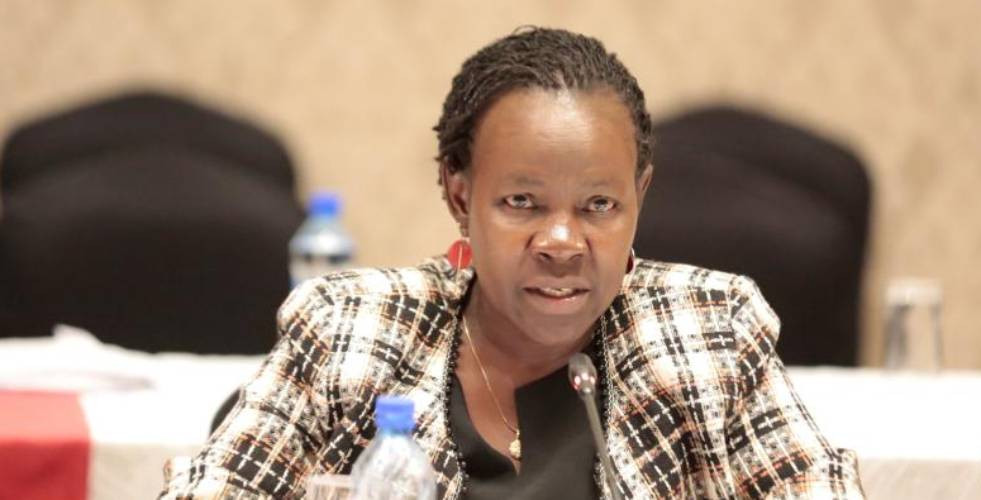With more than 50 universities, Kenya has in the last two decades managed to reduce significantly annual airlifts of thousands of students to foreign universities in Asia, Europe and the US in search of higher education. Universities in any country have a critical role in providing leadership for the achievement of a country's higher goals and objectives.
Universities the world over are deemed as temples of learning, deep wells of knowledge, wisdom, tolerance, democracy, spirit of adventure, great ideas, progress, innovation and indeed, a source of solutions to most of the problems that afflict us.
If our universities discharge their duty effectively, we will no doubt have a progressive and cohesive nation that deserves respect in the international community. Sadly, some temples of higher education have become homes of bigotry, tribalism and petty objectives. Elected leaders, who should provide the right environment for universities to thrive and attract local and international students, are unfortunately responsible for the rearing of the ugliest head of ethnicity and bigotry within these institutions.
Student elections in some universities have been characterised by the influence of money, ethnicity, political competition, violence and alcoholic influence instead of being guided by the spirit of intellectualism in choosing student leaders. Borrowing a leaf from the immoral politics that surrounds us, students also seek the services of goons hired by dirty money from the same politicians, to influence voting patterns.
Clearly, universities that cultivate the spirit of intellectualism and servant leadership earned through mentorship, can offer this country the right leadership. It is for this reason, perhaps, that Deputy President William Ruto urged leaders, university students and political supporters in the North Rift to keep away ethnicity and tribalism, including universities. His message could not have been expressed at a better time.
Even as Mr Ruto was preaching against the evil of tribalism in Eldoret, we cannot forget about the senior county official who led ugly demonstrations against some university officials, accusing them of favouring outsiders in employment.
In countries that embrace devolved governments, governors are chancellors of State universities within areas of their jurisdiction. It would shock anybody if a chancellor of a State university hired youths and goons to engage in violent demonstrations against a vice chancellor or university leadership in the name of fighting tribalism or ethnicity.
Doesn't it work better if a county official could follow legal or administrative channels to seek discipline against an errant university administrator instead of hiring mobs to cause mayhem?
Institutions of higher learning react to violence in the same way tourism reacts to insecurity or any form of peace-threatening situation. This is how politicians seek to kill institutions of higher learning by scaring away potential students, parents and college staff.
It is also worrying that student elections in our universities, especially public universities, have regrettably been fought on tribal basis.
Those who run our universities must help reclaim the critical role of universities in ensuring that campuses espouse the spirit of tolerance, nationalism, and humanism and lead a sustained crusade against ethnicity and greed.
We must also ensure our universities do not cross the line, even when passion convulses and attempts to blind administrators at a time duty expects that they must lead these institutions by providing best examples. Ours is a country where leaders are on daily basis domesticating evil in form of insatiable greed, corruption and ethnicity.
We cannot achieve our goals through, first the wrong means and, secondly, by defending wrong. And this is the challenge to our universities as institutions responsible for mentoring servant leadership.
We do not wish to keep quoting the US President whose address to Kenyans touched on some of these vices. Universities must be given an opportunity to train and prepare young minds that will spend their energy fighting against the various vices that afflict the country, including theft of public resources, nepotism and isolation of others from participation in national activities.
The youth of this country have a right to be bequeathed a strong, free and democratic country where all have equal opportunities for progress.
Stay informed. Subscribe to our newsletter
Eldoret is emerging as a leading hub of higher education institutions. The communities in the North Rift Valley and the Government have invested heavily in these institutions. These institutions, whether public or private, therefore, must be protected from the influence of narrow minds, ethnicity and fear-mongering.
The region has in the past suffered the pains of ethnicity and time has come for the region to be allowed to heal. We need leaders to create favourable conditions that will attract and retain quality faculty, both local and international students, donors and partnership based on institutions' integrity.
Kenya is not going to achieve its traditional and emerging goals, including Vision 2030, through crookedness. Maybe we need to borrow some of the best practices from existing faith-based universities that integrate faith and learning to instill servant leadership among young learners.
We therefore need to inspire university students to have both a national and international outlook. This can only be achieved if our politicians are advised to keep off the institutions and allow university councils and senates to manage the institutions.
 The Standard Group Plc is a
multi-media organization with investments in media platforms spanning newspaper
print operations, television, radio broadcasting, digital and online services. The
Standard Group is recognized as a leading multi-media house in Kenya with a key
influence in matters of national and international interest.
The Standard Group Plc is a
multi-media organization with investments in media platforms spanning newspaper
print operations, television, radio broadcasting, digital and online services. The
Standard Group is recognized as a leading multi-media house in Kenya with a key
influence in matters of national and international interest.
 The Standard Group Plc is a
multi-media organization with investments in media platforms spanning newspaper
print operations, television, radio broadcasting, digital and online services. The
Standard Group is recognized as a leading multi-media house in Kenya with a key
influence in matters of national and international interest.
The Standard Group Plc is a
multi-media organization with investments in media platforms spanning newspaper
print operations, television, radio broadcasting, digital and online services. The
Standard Group is recognized as a leading multi-media house in Kenya with a key
influence in matters of national and international interest.









